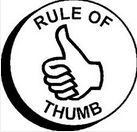The one, all powerful document, called a dental real estate lease, could secure or obliterate your financial security.
Surprisingly the financial dangers have nothing to do with the price per square foot.
Read on, in this 3 part article to discover the 3 worst FAILS of a dental real estate lease.
If
you take this topic lightly, you may end up with nothing at the end of
your lease term. In some cases you may even owe money for the privilege
of leaving!
The
good news, however, is if you’re aware of a few of the worst
possibilities, you’ll be better prepared
to negotiate your new lease so
you stay in control and in power.Your future financial success may depend on this!
The 3 Parts You’ll Discover in this Mini-Series:
1. A Lease that Robs You of Your Practice Value
2. Scariest Clause of All – Confession of Judgement
3. How to Win
PART 1:
A Dental Real Estate Lease that Robs You of Your Practice Value
Your previous landlord (or perhaps your soon-to-be previous landlord) has the ability to make your departure from your old office space either wonderful or nightmarish.

How can that be?
Aren’t you free to leave at the end of the lease?
The answer is, “sort of”.
For example, what if you current dental real estate lease restricts you from opening in the same town?
Sound crazy? It happens.
Or worse yet, consider the following story…
The Story: An Awful, Scary, Real Possibility
What
if your current lease gives the landlord permission to put a lien on
your business for breach of lease…even though you paid on time and think
you did everything properly?
Impossible? No.
Imagine if you were the doctor in this situation:
The day has come.
You’re ready to move your practice to another facility.
You’re so excited!
You just told your landlord you want to negotiate terms of the lease or you may have to start looking around.
You feel in control.
You’ll either move to your dream location or you’ll get a big break in rent. You’re a genius!
You tell yourself, “this is what savvy, responsible businesses owners do”.
Your practice has paid rent on time every month and you’ve even made improvements to the building.
“The landlord loves me”, you’ve told yourself.
He’d be crazy not to keep me as a tenant.
And if not, I’m free to move on to another facility.
Sounds great, right?
Wrong.
Is
this story, the landlord documents each of the days you occupy the
building, doing business and seeing patients after “normal business
hours”. So far, this sounds like a typical dental real estate lease.
Remember when you came in on the weekend to get some office work done?
Or when you came in at night, after hours to help out patients in need?
Well, in this story, for each occurrence when you came in after-hours,
the landlord marked it as an infraction against the lease. The landlord
documents time and date in a file (it’s not very difficult with
landlord-access to your security system, monitoring entry, exit and
movement in the building).
Because your lease in this story
disallows you from operating “after normal business hours”, the landlord
documents the following…
VIOLATION OF LEASE.
2 days later, the landlord returns with a letter that says:
You’ve
been found to be in violation with the lease and are hereby required to
make payment in full for the remainder of the lease and vacate your
business from the premises immediately.
Like most doctors (or any small business), you don’t have access to that kind of money!
It’s a dental real estate lease nightmare.
This can happen.
And if it does, it could spell financial failure for you.
What if he puts a lien on your practice to try and get payment?
Sound impossible? It’s not.
Sound horrifying? It is.
 Rule of Thumb: If it’s in the lease, it’s binding.
Rule of Thumb: If it’s in the lease, it’s binding.
The hard truth is that a business lease is very different from that lease you had back in college.
That was a residential lease. A residential lease provides many, many
protections for the tenant. They’re families and they have built in
legal protections.
But a business lease leaves the tenant – you - with virtually NO rights.
Once you sign a dental real estate lease, you’re nearly always stuck
with the legal realities – whether you noticed the dangers or not.
Your old college lease gave you more rights than you knew you had access
to. Business and Personal leases are VERY different. Please don’t
forget that.
Your “old” lease could have sleeping landmines in it!
Those landmines may have been there for decades, lying dormant as
cleverly worded clauses requiring of you many months of headache. For
some dental real estate leases it could even mean many tens of thousands
of dollars that could surprise you on your way out the door.
You and your landlord have probably gotten along very well but without having your exit plans in writing, you could be in for some pricey surprises. Many of our clients have shown us their current lease and we find scary, very expensive clauses in many of them.
Go it Alone?
It’s
possible to avoid these surprises but you need the proper preparation
and planning (we’ll cover this in part 3 of Dental Real Estate Lease
Fails).
In almost every state in the U.S., commercial leases leave the tenant (you) with nearly no protections.
It’s up to you to make sure you’re financially safe with your “old”
landlord well before you plan on leaving the space. But don’t go into this alone!
Our clients get a full review of their existing lease and even have the
option to have pieces of it renegotiated to save money and headache.
IMPORTANTLY: this stage must be examined well
before you speak with the landlord. Doctors who want the most options
begin this process well over a year before their departure.
Include these thoughts in as you prepare to negotiate an existing or new lease.
If you do all this, you’ll be in a much stronger position and you’ll clear a path for you financial success!
Coming Up Next:
In
our next article, you’ll be able to pinpoint one of the worst clauses
of a dental real estate lease. It’s a clause that you should run from
because it could ruin any chance of financial success.
By Jayme Amos
Disclaimer:
I’m not an attorney and none of this is to be considered legal advice.
Consult an attorney in your state to discuss legal matters.
Jayme and his team have helped hundreds of dental professionals pursue their goals. Now you can learn from the best in the dental industry.
Click here to discover more practice-defining tips for your new or existing practice:
www.HowToOpenADentalOffice.com
View the original article here.